Disclosure: Meeple Mountain received a free copy of this product in exchange for an honest, unbiased review. This review is not intended to be an endorsement.
The Shores of Tripoli is a card-driven wargame for 1-2 players from Fort Circle Games. Based on the first Barbary War or the Tripolitan War (1801-1805), players take on the role of the nascent US Navy or Tripoli as they struggle over the US’s refusal to pay tribute for protection against piracy in the Mediterranean. The US player must demonstrate to the Tripolitans and the Americans back home that the Navy can protect US merchantmen while the Tripolitan player must either do enough damage or gather enough tribute to make their refusal moot.
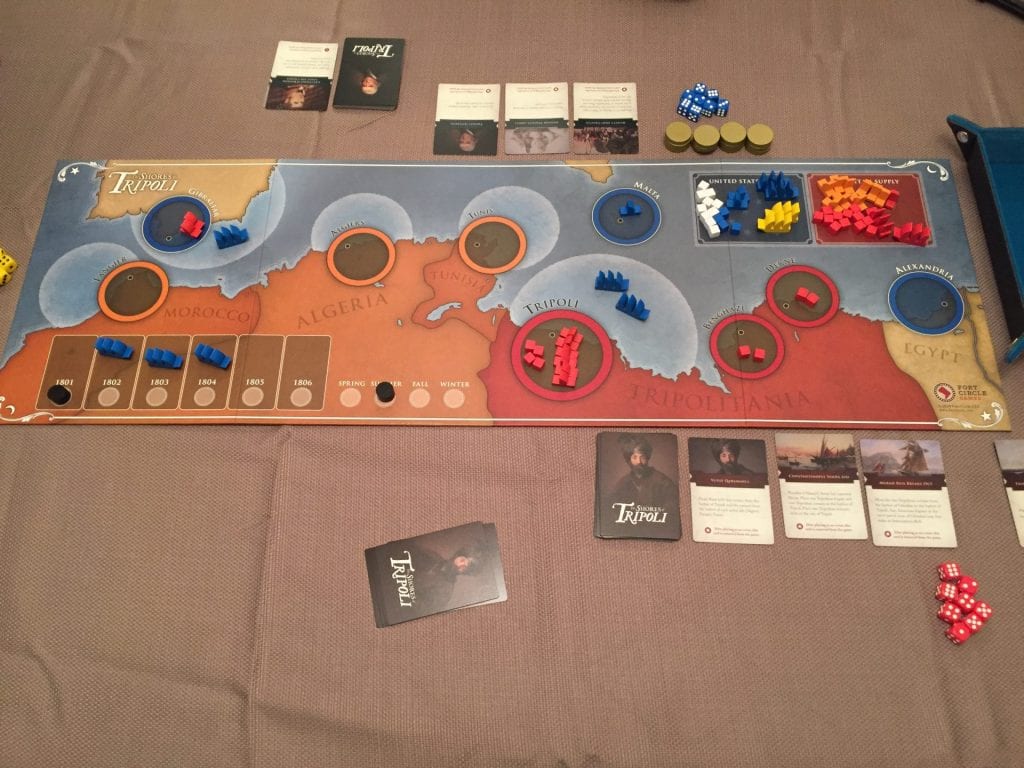
From the Halls of Montezuma to Your Gaming Table
Mechanically, this is a card-driven wargame. Each full turn, which represents 1 year starting in 1801, players draw 6 cards and add them to their hand. Cards can be played for their event or discarded to perform some standard actions. The US player can always discard to move frigates or build gunboats in Malta, for example, while the Tripolitan player can discard to build corsairs or else launch a pirate raid from Tripoli itself. Cards are played in 4 rounds, which represent the 4 seasons. First, the US player will play a card and carry out its ability, then the Tripolitan player will follow suit. Once players are familiar with the game, turns can fly by as actions are often short but impactful. The result is a quick-playing wargame where actions and counter-actions are the name of the game.
Movement in Shores of Tripoli is the sole domain of the US player. The map is divided into several ports, patrol zones, and the open waters of the Mediterranean. The US player will have to carefully consider when and how to attack with their slowly expanding fleet. Placing frigates in patrol zones gives the US player a chance to intercept merchant raids, but can also leave them exposed to storm cards, for example. The Tripolitan player, on the other hand, is restricted to pirate raids and reinforcing their fleets.
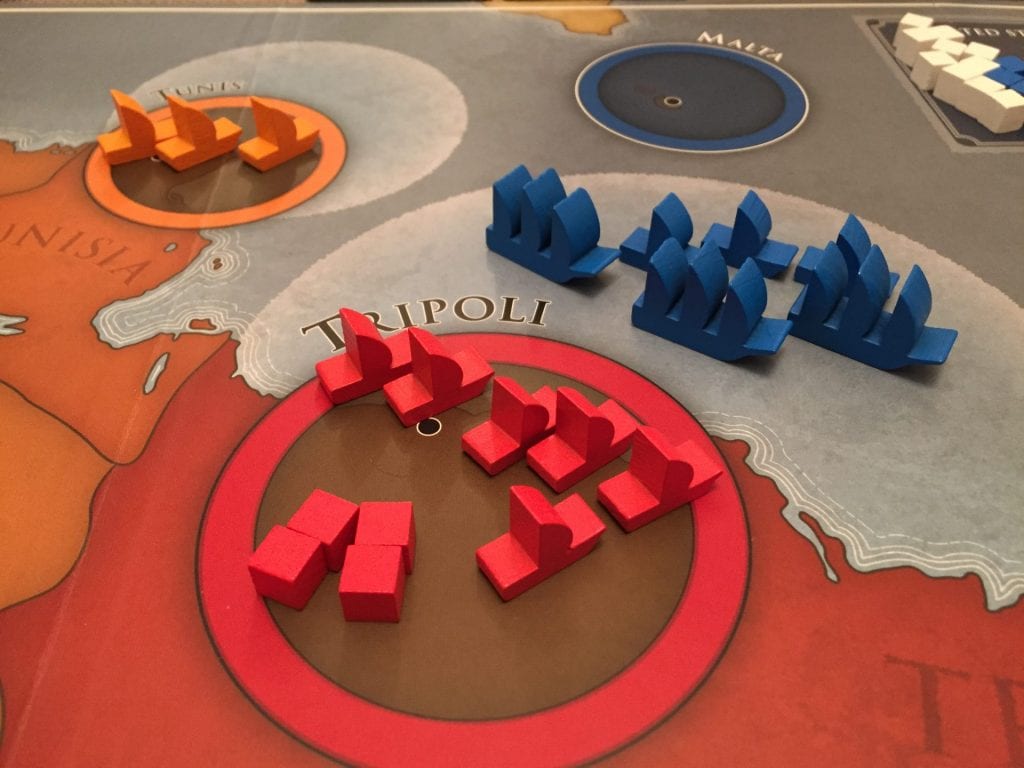
Asymmetrical Wargaming at its Simplest, and Finest
One of the most interesting things about Shores of Tripoli are the asymmetrical capabilities of each side. The US player is responsible for pushing the Tripolitan player, while the Tripolitan player must react well to these threats. Since the US player is the only one that can normally move their frigates and gunboats around the map, and are the only one (aside from one event card) that can initiate combat, the pressure falls on them to earn their victory. The Tripolitan player, alternatively, is forced to maneuver against this superior strength. By calling allies through events and raiding to gain currency, they must do what they can to reach their objectives before Tripoli falls to the US or a peace agreement is signed.
The asymmetry continues into the different victory conditions. The US has to complete a difficult checklist to force the Tripolitan player to sign a peace treaty or else amass enough ships, marines, and Arab allies to assault Tripoli itself. For the Tripolian player, victory comes from less direct means. If they can raid and cajole enough to earn 12 gold tokens, they can declare a victory. Or, if they’re crafty and perhaps lucky with the dice, seeing 4 US frigates sink is enough to declare a victory and send the American forces home.
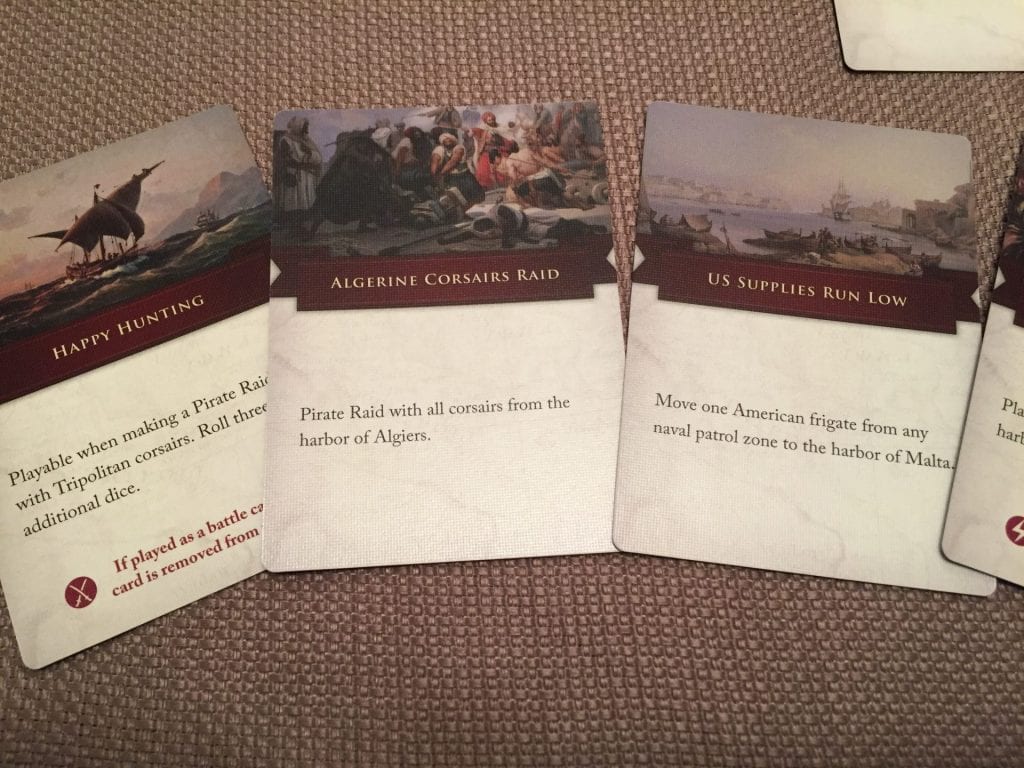
There is a concern with a game so tied to its limited set of event cards, that Shores of Tripoli might become deterministic. I’m happy to report that, even after several plays, the tightness of the design has only led to an increase of subtly different strategies being employed by both players. The objectives and the tight timeframe in which the US player has to reach their goals will certainly drive players towards different decisions, but unlike other games with a larger card base, the fact that every card will be seen at least once in a game of Shores of Tripoli ends up adding to the tension and mind games both players need to employ to find victory.
There is an included solo bot in Shores of Tripoli for the solitaire gamer. This bot adds a few new cards and takes control over the Tripolitan player. It’s no substitute for a thinking, breathing human, but the bot can put up an admirable fight, and even win sometimes. It’s definitely worth checking out, as the lightness of Shores of Tripoli overall means that solitaire games can be played quite quickly, if one has the mind to do so.
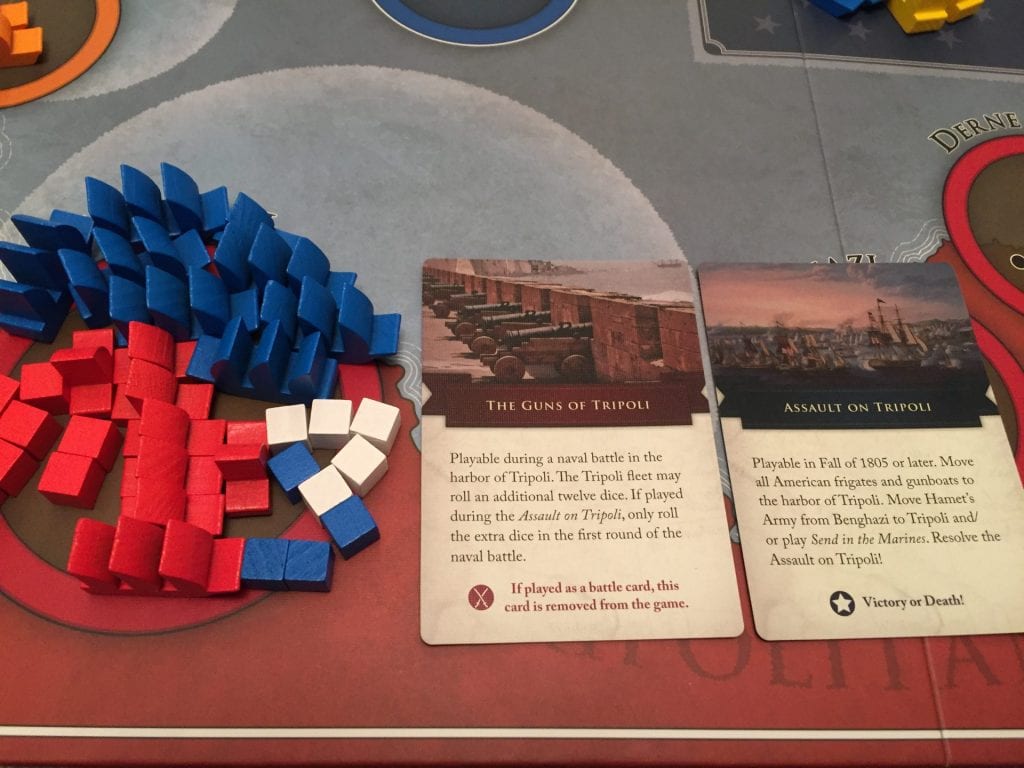
As Beautiful as the Mediterranean Itself
The components are magnificent. Perhaps I have a lower bar for wargames, but Shores of Tripoli blew me out of the warm Mediterranean waters. The cards are thick and sturdy with beautiful period art. The board is simple and solid with easily discernible playing areas. The tokens for each side use coloured cubes for ground forces, but amazing wooden ships to represent frigates, corsairs, and gunboats. While the game itself is a treat, I was pleased to see a reprint of the letter from Thomas Jefferson written to the Pasha of Tripoli included in the box, and a detailed history and design document with sources. I am always delighted to see these extra steps taken in wargames. When the game is this good, it takes only a small glance in the box to nudge players down the path to exploring the history of the event in other sources.
The Shores of Tripoli is an absolute treat and, as the first release from Fort Circle games, has me eager to see what’s next for the company. With a direct sequel The Halls of Montezuma in the works, and the fascinating Votes for Women appearing soon, it looks like there’s a bright future in store for Fort Circle Games. As for Shores of Tripoli, such an elegant and enjoyable light wargame should be experienced by anyone even remotely interested in the period or simply in finding the next excellent two player strategy game. Simply a must play.


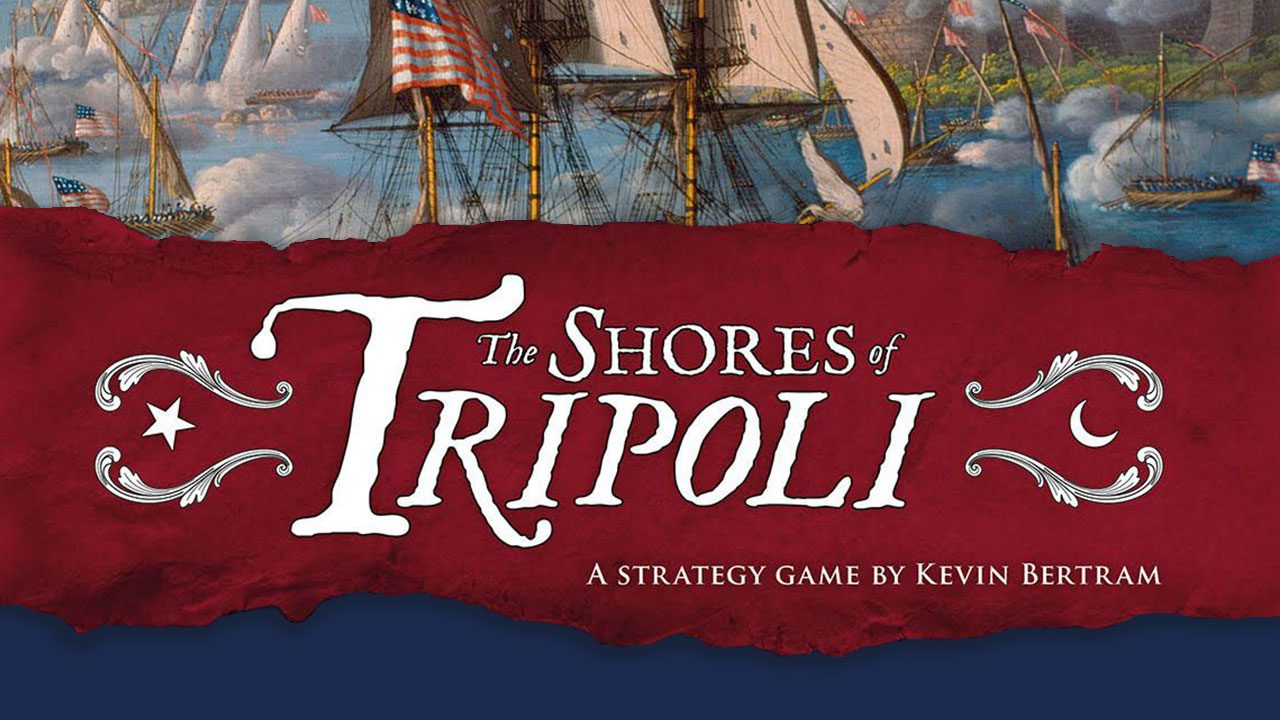









Add Comment